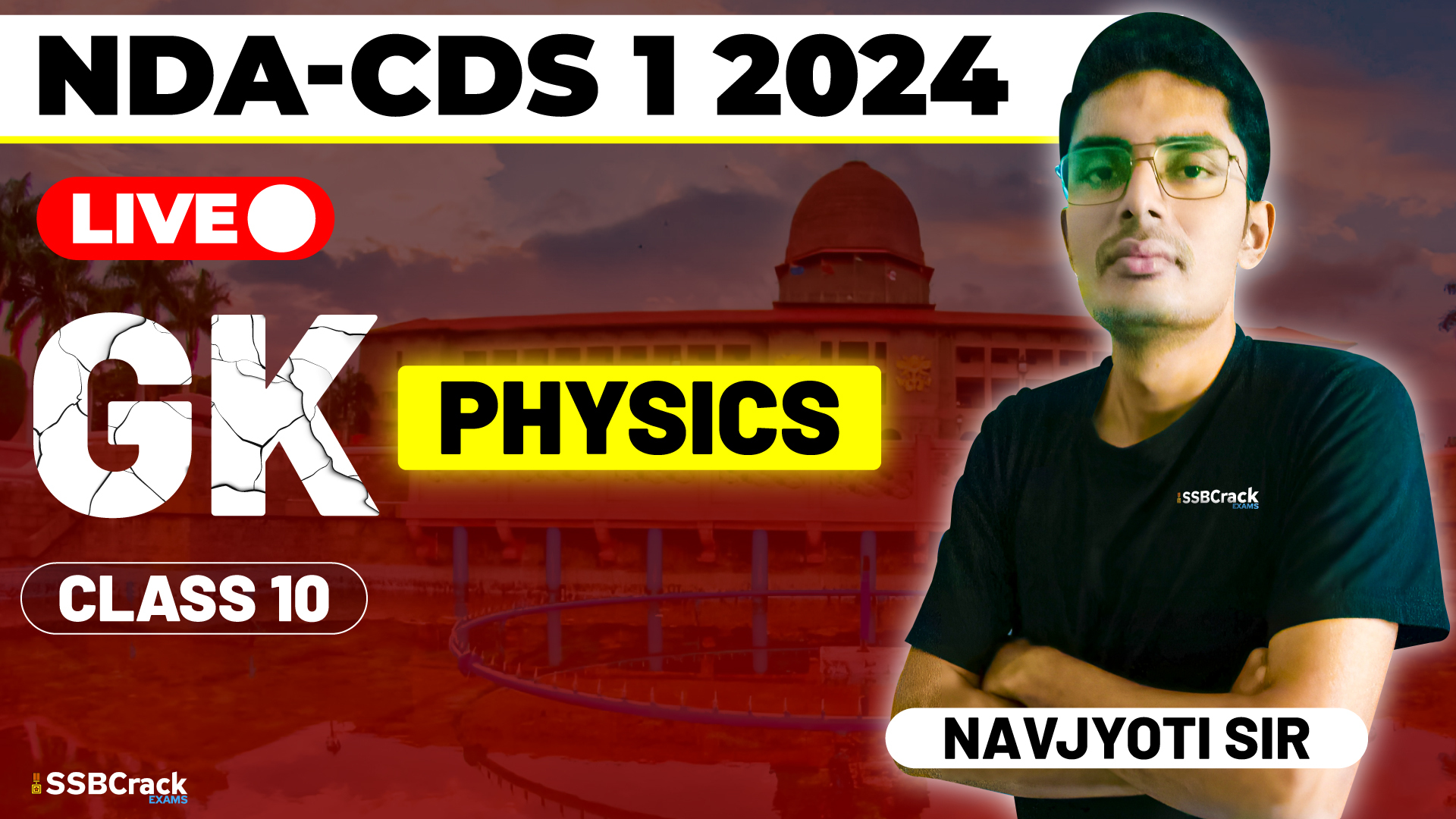In the pursuit of success in exams like the NDA & CDS 1 2024, a solid foundation in physics is essential. The GS Live Physics Class 10 proved to be a crucial session, unraveling the mysteries of Gravitation and Fluids at Rest. This article aims to shed light on the key insights from the class, focusing on essential concepts and significant questions related to Newton’s Law of Gravitation, Acceleration due to Gravity, Kepler’s Laws, Pressure and Pascal’s Law, Density and Specific Gravity, Buoyancy, and Archimedes’ Principle.
The Force of Attraction: Newton’s Law of Gravitation:
The lecture commenced with an exploration of Newton’s Law of Gravitation, a fundamental principle that governs the force of attraction between two masses. Participants were guided through the understanding that every particle of matter in the universe attracts every other particle with a force that is directly proportional to the product of their masses and inversely proportional to the square of the distance between their centers.
Falling Gracefully: Acceleration due to Gravity:
The discussion seamlessly transitioned into the concept of acceleration due to gravity. Participants gained insights into how all objects, regardless of their mass, experience the same acceleration when falling under gravity. Real-world examples, such as a dropped feather and a heavy rock, were used to illustrate this universal phenomenon.
Orbiting in Harmony: Kepler’s Laws:
The GS Live Physics Class 10 explored Kepler’s Laws, a set of three laws that describe the motion of planets around the sun. Participants were introduced to the first law, stating that planets move in elliptical orbits with the sun at one of the foci. The second law emphasizes that a line segment joining a planet and the sun sweeps out equal areas during equal intervals of time. The third law establishes a relationship between the orbital period of a planet and its average distance from the sun.
Hydrostatics: The Study of Fluids at Rest
Shifting the focus to hydrostatics, the class unfolded the principles governing fluids at rest. The discussion commenced with an exploration of pressure and Pascal’s Law. Participants gained insights into how pressure is exerted uniformly in all directions in a fluid at rest, and Pascal’s Law, which states that a change in pressure applied to an enclosed fluid is transmitted undiminished to all portions of the fluid and to the walls of its container.
Density and Specific Gravity: Unveiling the Composition
The class delved into the concepts of density and specific gravity, providing a deeper understanding of the composition of fluids. Participants learned that density is the mass per unit volume of a substance, while specific gravity is the ratio of the density of a substance to the density of a reference substance, typically water.
Buoyancy: Floating Forces
Building on the understanding of fluids at rest, the discussion moved to the concept of buoyancy. Participants gained insights into how objects placed in a fluid experience an upward force called buoyancy, which is equal to the weight of the fluid displaced by the object. Real-world examples, such as a floating ship or a submerged object, illustrated the principles of buoyancy.
Archimedes’ Principle: Rising Above
The GS Live Physics Class 10 unfolded the significance of Archimedes’ Principle, which states that a body immersed in a fluid experiences an upward buoyant force equal to the weight of the fluid displaced by the body. Participants gained insights into how this principle explains why objects float or sink in fluids.
Conclusion:
In conclusion, GS Live Physics Class 10 on gravitation and fluids at rest stands as an invaluable resource for NDA & CDS 1 2024 exam aspirants. By unraveling the intricacies of Newton’s Law of Gravitation, acceleration due to gravity, Kepler’s Laws, hydrostatics, pressure, Pascal’s Law, density, specific gravity, buoyancy, and Archimedes’ Principle, the class laid a robust foundation for understanding the dynamics of gravitational forces and fluid behavior. The addition of practical applications, discussions on fluid composition, and a problem-solving approach makes this live class a crucial asset for those aspiring to excel in competitive exams.







